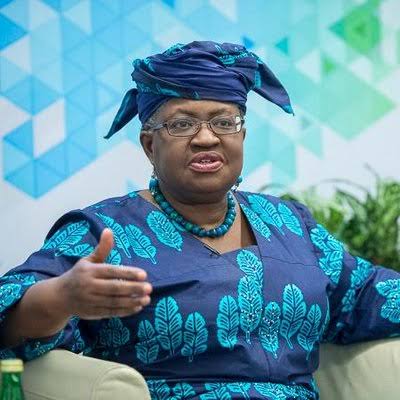We have been presented the opportunity to reimagine and redesign our society into a vibrant and equitable one COVID-19 has unearthed massive inequalities within our societies and brought to glaring light the unique burdens that women carry the world over.
Allocation of response resources should be targeted towards the immediate needs of managing the virus as well as future-looking to simultaneously dismantle the structural, systemic barriers which reinforce inequality and disenfranchisement.
This was the submission of four of the foremost female African leaders including Dr. Ngozi Okonjo-Iweala, Board Chair, Gavi the Vaccine Alliance, AU Special Envoy to Mobilize International Economic Support for the Fight Against COVID-19; Mrs. Graça Machel Founder, Graça Machel Trust and the Foundation for Community Development; Dr. Vera Songwe, Executive Secretary, United Nations Economic Commission for Africa and Ms. Maria RamosCo-Chair of the UN Secretary-General’s Task Force on Digital Financing of the Sustainable Development Goals.
In a statement made available to the press last week, the women said we have been presented the opportunity to reimagine and redesign our society into a vibrant and equitable one. “We must place women and women’s leadership at the core of the response and beyond”.
According to the statement, COVID-19 has caused massive shocks to both the informal and formal economies in Africa.
The World Bank estimates that the Sub-Saharan Africa region will see a significant economic decline, and plunge to as low as -5.1% this year. It said women have been hit particularly hard by this economic downturn. Emerging evidence from the ILO on the impact of COVID-19 suggests that women’s economic and productive lives will be affected disproportionately.
They have less access to social protection and their capacity to absorb economic shocks is very low.”
As the economic toll of the crisis is felt, there is also an increased risk that female children will be forced into early marriages, and the number of child marriages and early pregnancy may increase as girls are turned into a source of quick income for families.
Food systems
Given these shocks to society at large, it is no surprise that our food systems will be dealt a significant blow resulting in the dangerous exacerbation of food insecurity and nearly doubling current levels of widespread hunger”.
The female leaders lamented that COVID 19 has disrupted supply chains and thrown the global food economy into disarray. As border closures, production stoppages and export restrictions limit supply, demand has surged while inflating prices and impacting the world’s poorest and most marginalized people, with Africa not being an exception.”
Women are central players in the food chain and key to agricultural output on the continent. 50% of the agricultural activity on the continent performed by women, who produce about 60-70% of the food in Sub Saharan Africa”.
Health
”Studies reveal that the cost of malnutrition has a tremendous impact on a country’s economic growth. A lack of adequate nutrition is a key contributor to unacceptably high levels of both maternal and child mortality as well as stunting— and therefore to the loss of human capital for the overall economic, social and political development of the continent.
The fragility of African health systems is revealing itself and women and children are most vulnerable to the lack of attention and adequate specialized services the diversion COVID 19 is causing resulting in an anticipated surge in child and maternal mortality.
Domestic violence has increased by upwards of 25% in some countries as a result of lockdowns. Victims face limited access to protective services during periods of quarantine”.
A Call to Action
Advising policymakers, they said women and women’s organizations should be at the heart of the COVID-19 response decision making and designing health and socio-economic policies and plans, stressing that an intentional focus on the lives and futures of women and girls is an essential part of breaking structural practices which have been marginalizing them.
“A system for collecting and disaggregating data needs to be put in place to ensure that the impact of the crisis on women is informing the redesign of fragile and inequitable socio-economic and health systems into fully inclusive, equitable ones”.
In addition, they urged government and Development Partners to implement Gender Lens Economic Policies and sharpen the capacity of women as engines of economic growth; invest in women along the local food chains to improve food security; recognize and implement equal rights in the workplace; narrow Gender-based Education Gaps; strengthen Health Systems while gradually implementing Universal Health Coverage, UHC, and providing Mental Health Services; comprehensively strengthen the Criminal Justice System and increase efforts around survivor support and protection.
”COVID-19 presents us with unprecedented opportunities for the regeneration of the African socio-economic landscape and the movement towards a just, equitable, and sustainably prosperous continent. Let us dare not squander this opportunity for a rebirth”, they concluded.
Post Disclaimer
The opinions, beliefs and viewpoints expressed by the author and forum participants on this website do not necessarily reflect the opinions, beliefs and viewpoints of Anaedo Online or official policies of the Anaedo Online.

